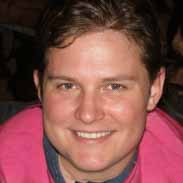True And False Flashcards, test questions and answers
Discover flashcards, test exam answers, and assignments to help you learn more about True And False and other subjects. Don’t miss the chance to use them for more effective college education. Use our database of questions and answers on True And False and get quick solutions for your test.
What is True And False?
The concept of truth and falsity is fundamental to our understanding of the world. Truth is often defined as conformity to fact or reality, while falsity is seen as the opposite. In general, something that is true corresponds with what we observe in the physical world and something that is false does not. While this may seem simple in theory, determining truth and falsity can be tricky in practice. When it comes to determining truth and falsity, context matters. For example, a statement such as the sun will rise tomorrow may generally be considered true because we have evidence that this has been consistently true over time; however, if someone were to say the sun will rise next week then they would likely be wrong because there are no guarantees that this will happen. Similarly, statements about subjective matters such as opinions cannot always be definitively labeled true or false since they depend on individual perspectives which can vary widely. In addition to context-dependent truths and falsities, there are also different types of logical arguments which can help us determine whether a statement is valid or not. These include deductive reasoning (which involves using facts to reach a conclusion) and inductive reasoning (which uses observations from specific cases to infer broader conclusions). Different forms of logic can lead us towards different outcomes when evaluating truth claims so it’s important to consider all available evidence before making any final judgments. Ultimately, determining truth versus falsehood requires careful consideration of both the facts at hand and the contexts in which those facts exist. It also requires an ability to evaluate different types of logical arguments in order make sound judgments about what might be accurate or inaccurate in any given situation.




















